When most people think of Marines they picture an infantry Marine holding a rifle, but the Marine Corps has a whole lot more to offer than just infantry jobs.
With more than 180 military occupational specialties, the Marine Corps offers everything from aviation to intelligence to special operations.
With so many jobs to choose from, potential recruits can be overwhelmed by all the possibilities. Getting advice from former Marines on the coolest or best jobs in the Marines can be difficult or even misleading because the terms “best” and “cool” are highly subjective.
The list below will cover a wide range of cool jobs in different fields within the Marine Corps ― brought to you by the Marine veterans of MarineApproved.com.
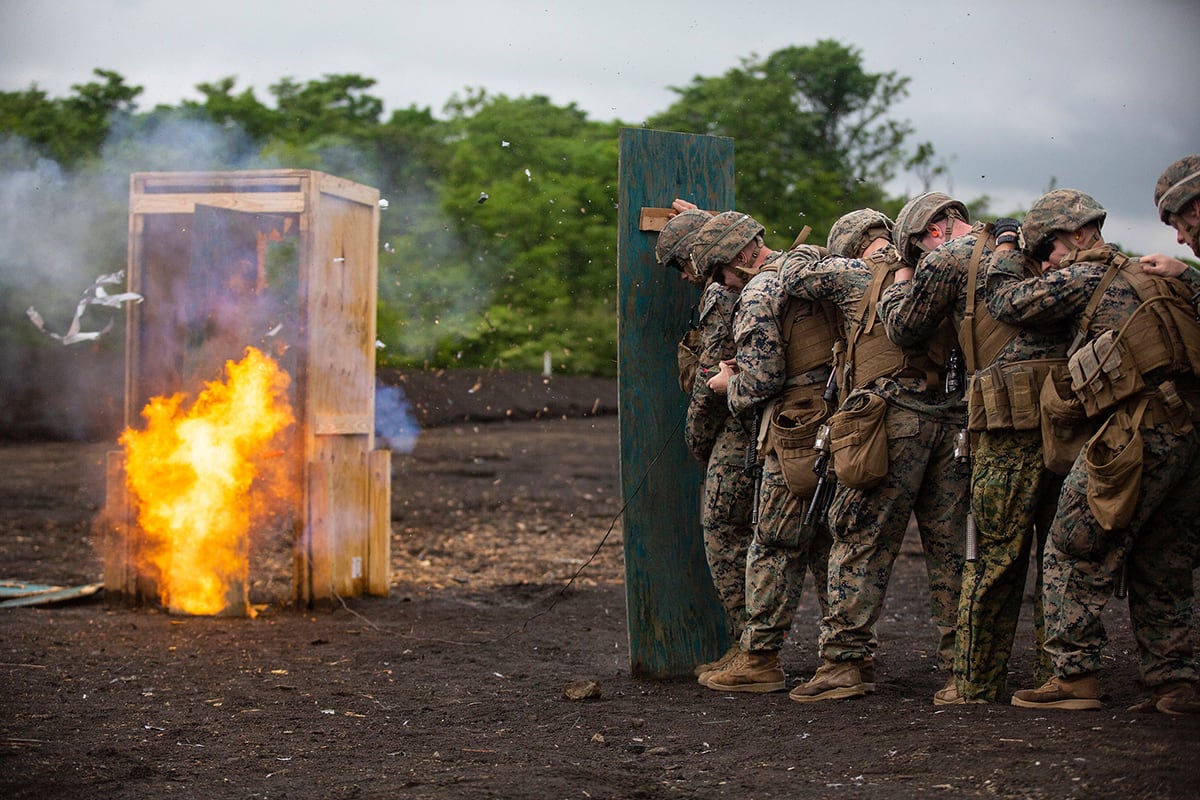
Combat Engineer (1371)
What they do: The easier question to answer is, “What don’t they do?”
Combat engineers often are considered jacks-of-all-trades, but specializing in explosives utilization and recovery as well as construction and destruction of structures. Engineers are problem-solvers, but don’t let society’s depiction of a nerd with a calculator and pocket protector fool you. Combat engineers often are fighting on the front lines with infantry counterparts.
A busy day in the life of a combat engineer might include building a bunker, making and placing breaching charges, clearing an enemy house, sweeping for improvised explosive devices, designing and implementing defense in depth (creating multiple layers of obstacles to protect a base/fighting position) and building bridges.
Combat engineers often will attend advanced schools, such as Sapper School, which teach advanced tactics used in special operations forces units, making them highly trained warriors.
How to become one: This job is not for the faint of heart. Named one of the world’s toughest schools by the Marine Corps, combat engineers must be intellectually and physically able to adapt to any battlefield challenge.
Becoming a combat engineer is pretty straightforward. First, you must score high enough on the Armed Services Vocational Aptitude Battery, or ASVAB, to meet the minimum requirements. You must have decent math skills as well as show mechanical aptitude. If you want to be sure you are focusing on the right areas to succeed on the ASVAB, talk to a recruiter and let them know you want to be a 1371.
As long as your ASVAB is high enough, a recruiter should put you in a combat engineer slot. You will then go to boot camp, Marine Combat Training and finally engineer school.
Job outlook after the military: Engineers have one of the best job outlooks once phasing back into civilian life. Being trained in so many multifaceted areas opens the door for jobs in a wide range of fields: construction, FBI bomb squad, weapon manufacturing/testing, just to name a few.
When coupling combat engineer experience with a college degree in an engineering field, you can frame yourself in a position to be highly sought after.
In any case, the government and government contractors often offer the best job opportunities.
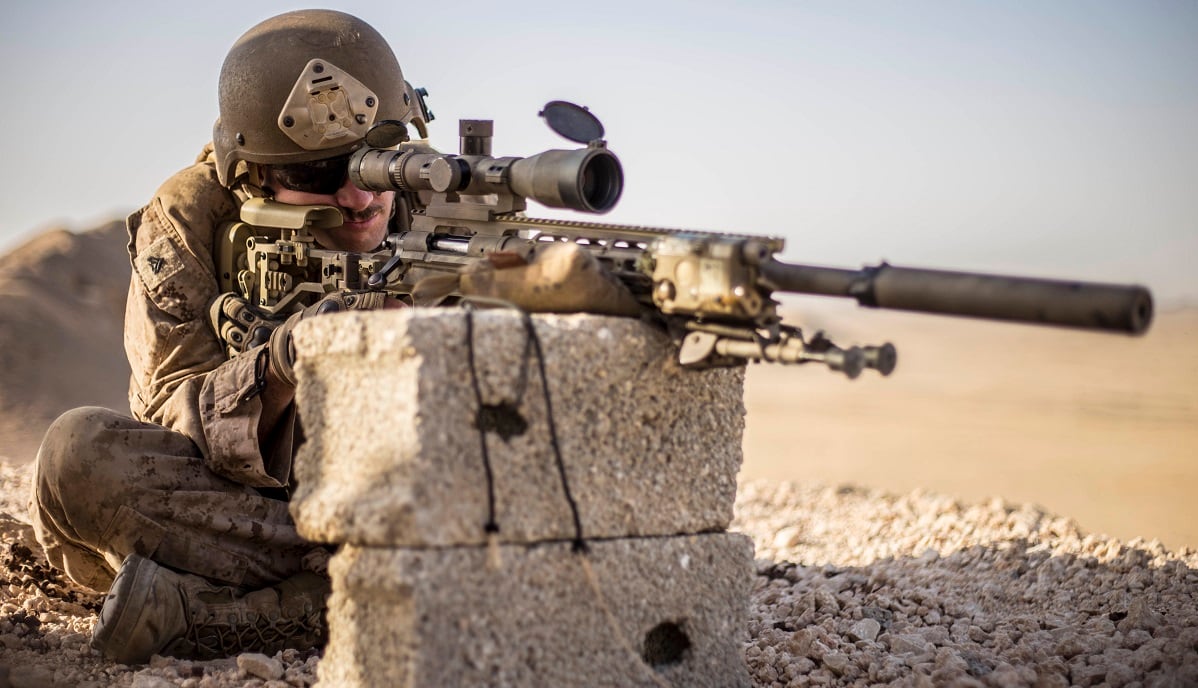
Scout Sniper (0317)
What they do: Marine scout snipers are renowned as some of the best snipers in the world due to their extensive training in observation, fieldcraft and long-range precision shooting.
Marine snipers are the eyes and ears of the battalion commander. They often are the first to be sent in behind enemy lines to scout enemy encampments, movements, weapons systems, route selections, etc. They then pass this intel back their command to be implemented into the battle plan.
Although scout snipers are best known for the ability to engage targets while remaining nearly invisible, this is actually only about 10 percent of the job. That said, scout snipers do get an unparalleled amount of trigger time.
How to become one: First, you need to be an 03XX, meaning you have to join the infantry. Then, whenever the scout sniper platoon is low on people, they will hold a “tryout,” known as a “screener” or “indoc,” which you can volunteer for.
RELATED
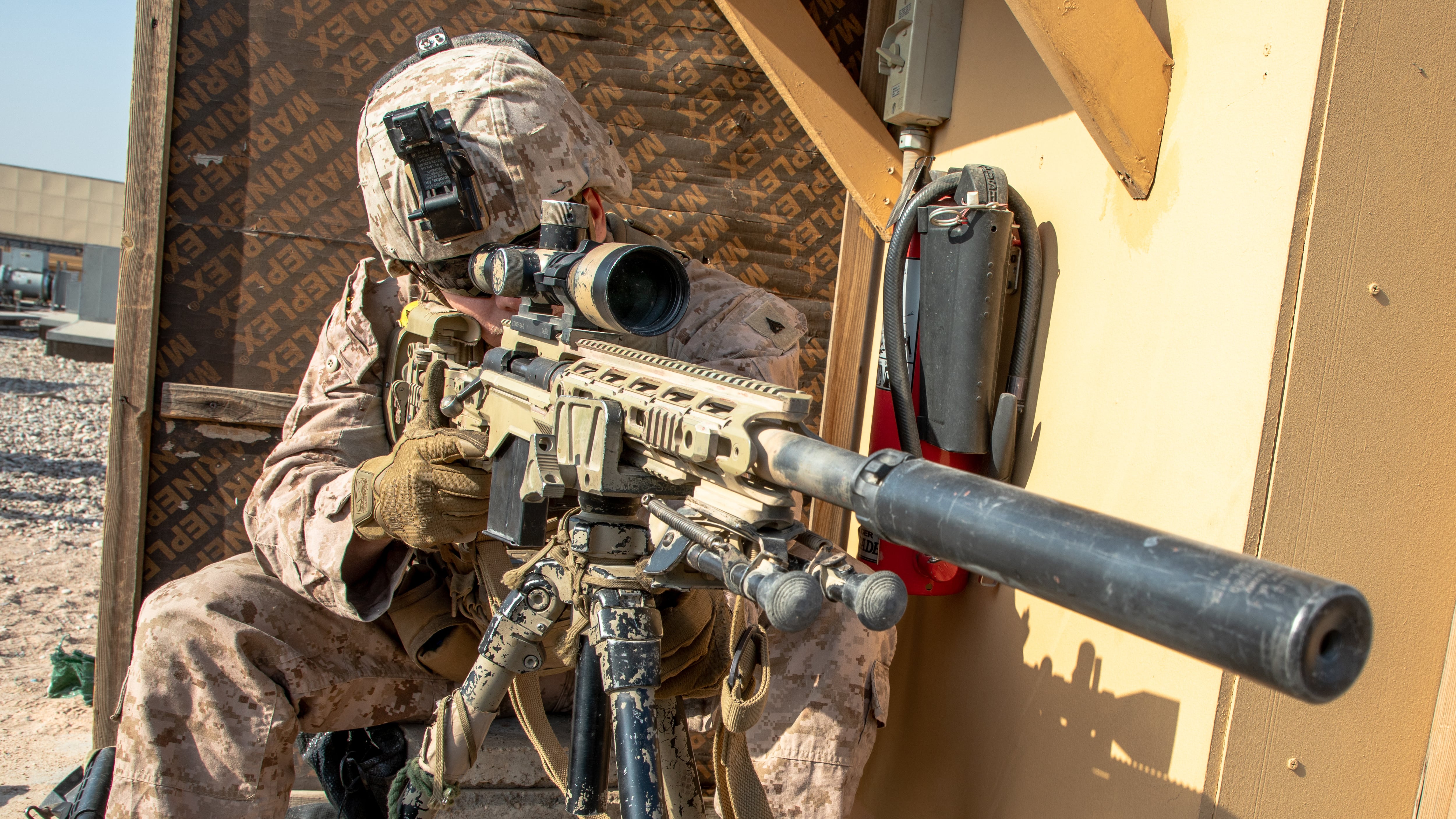
It’s usually two weeks of hell that the volunteers, known as slugs (Slow Lazy Untrained Grunts), are put through. After the screener, if the senior scout snipers believe you are one of the top infantry marines above your peers, you’ll be selected and graduate to become a PIG (Professionally instructed gunman).
Normally, after one deployment with the sniper platoon, or about a year of intense training, the senior scout snipers may notice you have potential to do great as a sniper, and you might get sent to scout sniper school where you might become a HOG (hunter of gunmen). I say might because there’s about a 33 percent chance of passing scout sniper school, even after all of the previous selections and rigorous training.
Job outlook after the military: There are many great job opportunities for scout snipers. Marine snipers get secret security clearances which aid in getting government jobs. Scout snipers are rare and the training opportunities in the Corps can relate well to civilian life. The intelligence field, tactical environments, weapons training, are all good opportunities that a scout sniper’s skill set may transfer to.
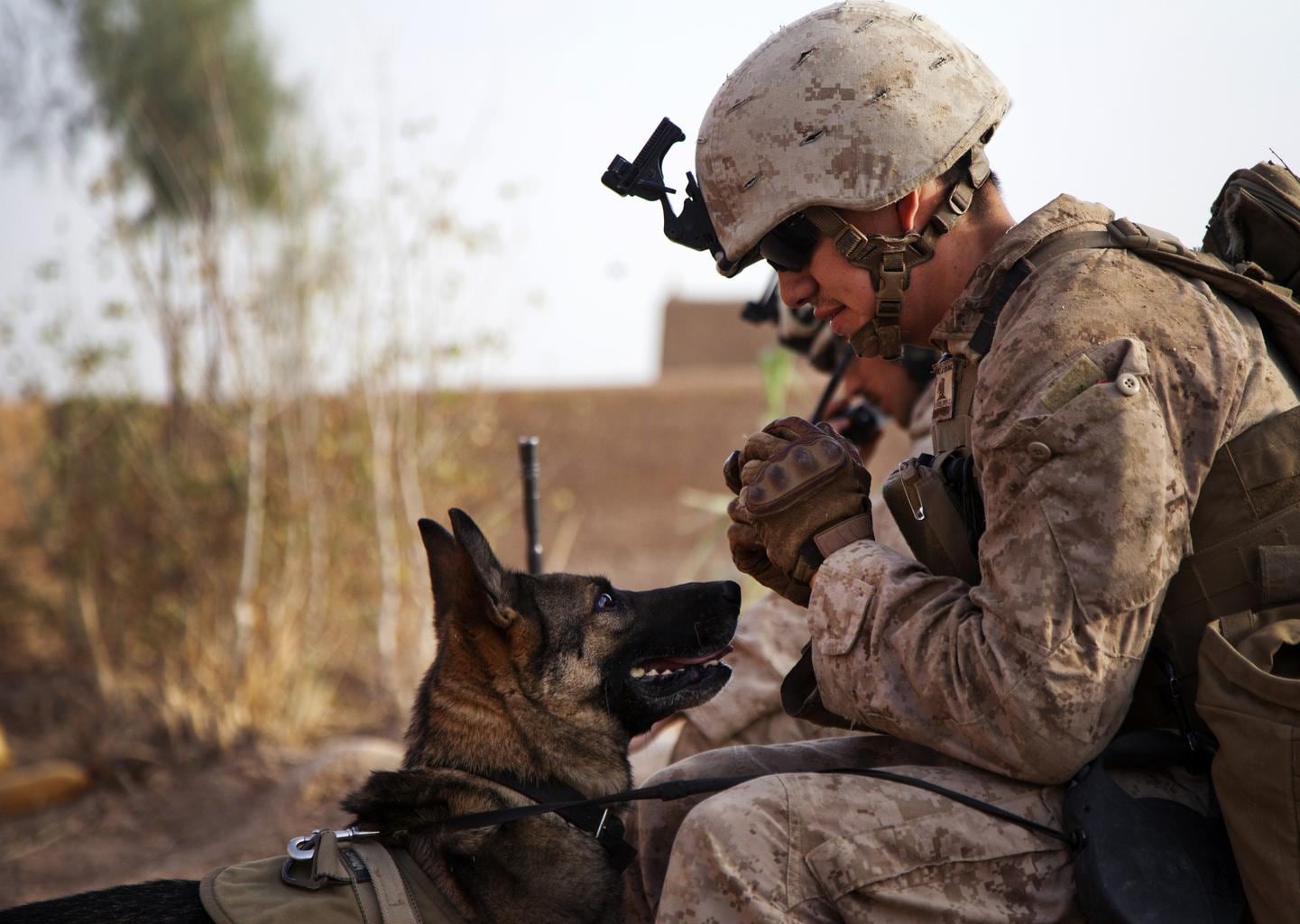
Dog Handler (5812)
What they do: You and your furry battle buddy will be tasked with a large assortment of missions across the globe but in all reality, most of these tasks will include something to do with the detection of munitions, explosive devices or illegal narcotics. Many of our brave servicemen and women have been saved by a military working dog alerting the squad to the presence of IEDs.
Of course, there may be other roles you and your canine may assume such as the detection of living humans in destroyed buildings, aiding in the clearance and security of a suspected room or space, or using your canine as a weapon of self-defense against an assailant.
How to become one: You might be surprised to find out that this position is among some of the most competitive and difficult to get (not including special operations forces roles). Positions are limited and even if you meet all of the requirements, you may be beat out by others that exceed your scores. Dog handlers are chosen by their display of leadership and ability to make extremely fast but accurate decisions in stressful environments.
If you think you’re a fine specimen of exemplary Marine behavior and performance and you choose the route of the 5812 you’ll need to attend and perform exceptionally well in the military working dog basic handler courses you’ll be enduring at the Army’s Fort Leonard Wood, Missouri. Selection is rigorous so it’s best to far exceed physical requirements and to study up before heading out for the course. Of course, you cannot have allergies to dogs and you must have an immune system capable of fighting off zoonotic infections associated with canines.
RELATED
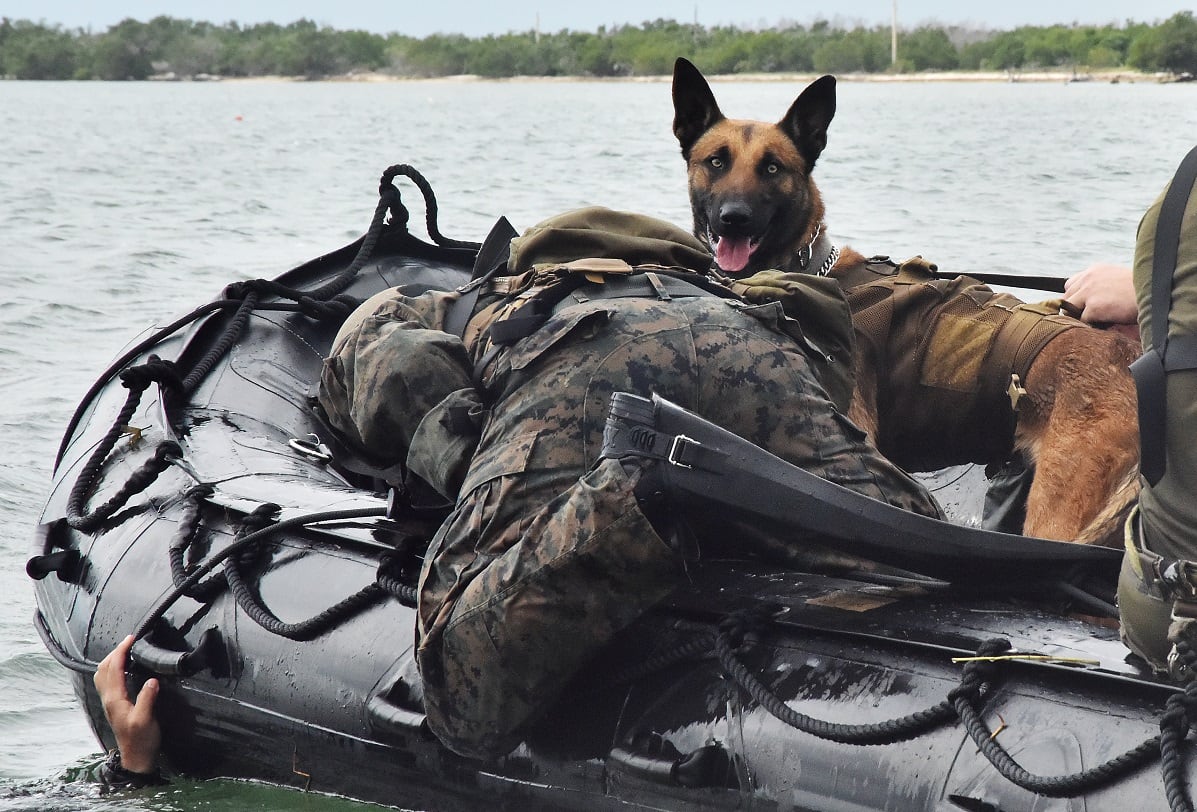
Job outlook after the military: The obvious path here would be to take on a federal or local law enforcement role as a canine handler. Many of the police we see today handling a canine for law enforcement purposes or those working in TSA to detect bomb threats were once handlers in the military. The military is arguably one of the best training opportunities for this path and as such, many of the most respected and high performing dog handlers on the civilian side got their start as a 5812.
You can also become part of the future of this program by becoming a trainer. Not all dog handler trainers are active-duty Marines and oftentimes the government may contract out talented but retired dog handlers to return and help train both dogs and dog handlers. This applies to law enforcement and even private dog training businesses as well.
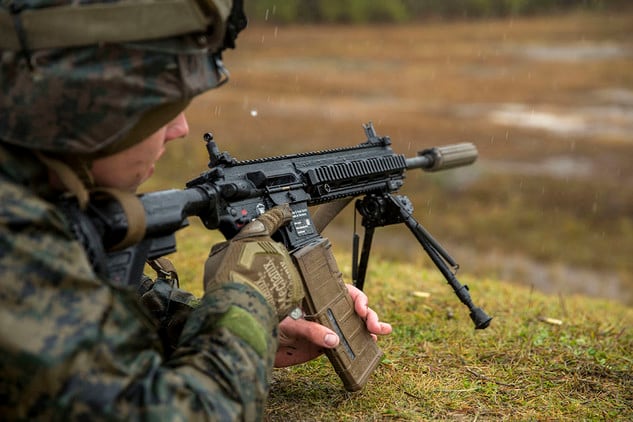
Rifleman (0311)
What they do: There is a saying in the Marines that every Marine is a rifleman, and while it is true that every Marine does have basic infantry skills, not every Marine is an infantry rifleman.
Infantry riflemen are highly trained in infantry skills including combat marksmanship, patrolling, land navigation, the use of grenades and shoulder-fired rockets, etc.
The title “infantry rifleman” is one of the most respected in the Corps, and you could make the argument that every other job exists to support them. Without a doubt, Marine rifleman are the foundation of the Marine Corps. They have a tough job and the scope of their mission can include everything from engaging enemies in close quarters combat situations to delivering humanitarian aid.
Marine riflemen know they have a tough job and they take a lot of pride in that, as they should. They have a proud tradition of being at the forefront of so many important battles and volunteer to put themselves in harm’s way for their country.
How to become one: To become a Marine rifleman you must sign a 0311 or 03XX contract. With an 0311 contract, your path to becoming a rifleman is set. If you sign a 03XX contract, it is not guaranteed that you will become a rifleman, but you will most likely have the option to select rifleman as your primary MOS at the School of Infantry. With an 03XX contract, you’ll likely also have the option to choose between other infantry jobs as well including machine gunner, mortar Marine, and tow missile gunner.
RELATED

Job outlook after the military: Although there is a joke among infantry Marines that the only skill they have that transfers to the civilian world is how to live without a home, Marine riflemen actually learn a lot of skills that are desirable to future employers.
Marine riflemen are given a large amount of responsibility and often are responsible for tens of thousands of dollars worth of gear. They also work well in teams and learn outstanding leadership skills while in the Corps. Marine riflemen learn how to take initiative, overcome any obstacle, and deal with stress in a high paced environment.
Having Marine Corps infantry on a resume can look good to employers, especially those in law enforcement and defense. Many riflemen also opt to go to college after serving their time in the Corps.
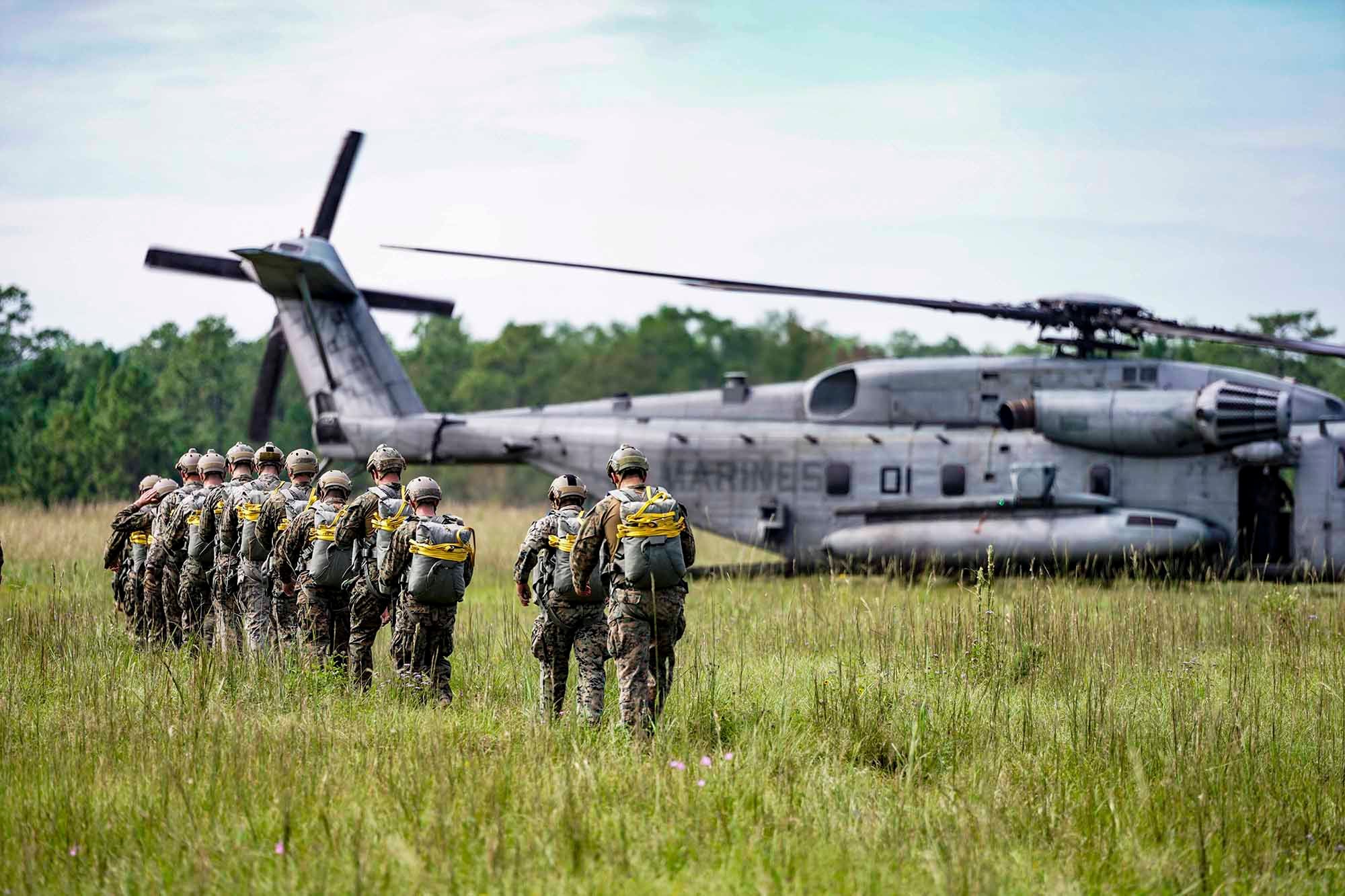
Recon Marine (0321)
What they do: Recon Marines are highly trained infantry Marines capable of operating independently behind enemy lines. They are tasked with the assignment of providing commanders with information on their area of operation.
Recon Marines gather intelligence and paint a picture of what the battlefield looks like. They conduct land reconnaissance, amphibious reconnaissance, boat operations and small unit raids. Once someone qualifies as a recon Marine they likely will have the opportunity to attend many other advanced schools including Marine scout sniper training, Army airborne school, Army pathfinder course and many other others.
How to become one: Your best chance at becoming a recon Marine is to enlist in the Marine Corps with a UZ contract. With this contract, you are guaranteed at least a shot at becoming a recon Marine. There are also some physical and mental requirements including a GT score of 105 or higher on the ASVAB, no moral waivers, no drug waivers, no colorblindness, and eyesight that is correctable to 20/20.
After completion of boot camp and SOI, Marines with a UZ contract will attend the Basic Reconnaissance Course and if they complete the course they will be assigned the primary MOS of 0321. If at any point in the process a Marine fails to meet the standards to become a recon Marine, their UZ contract is modified to UH, which is essentially a basic infantry contract.
Marines who attend SOI may get the chance to volunteer for a recon screener, and if higher up deems them fit, they may get a chance at attending becoming a recon Marine.
Job outlook after the military: Employers are always looking for dedicated employees that can think on their feet, and recon Marines certainly fit that bill. Along with leaving the military with many advanced technical skills, recon Marines also get a secret clearance that is enticing to many potential employers.
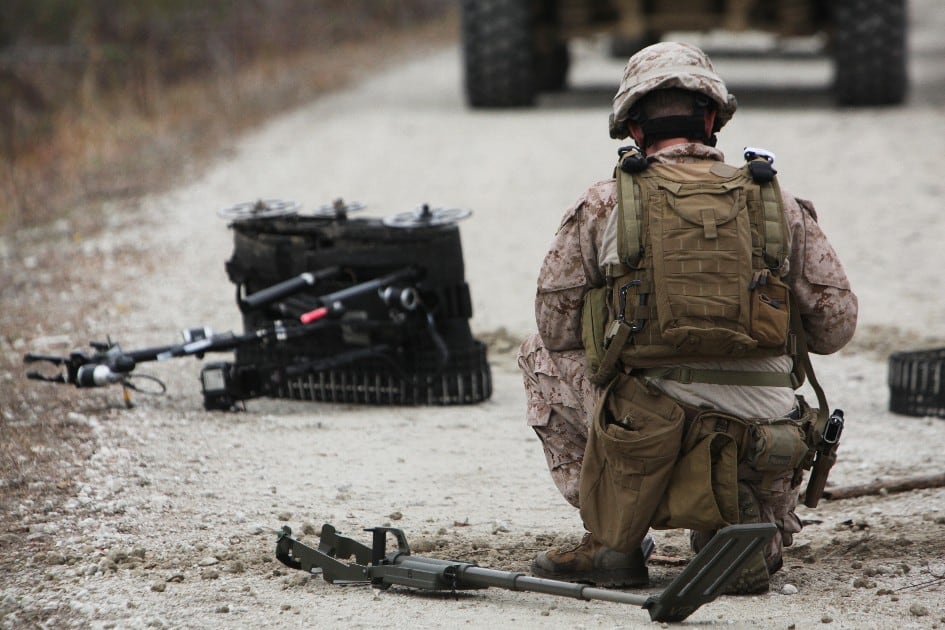
Explosive Ordnance Disposal (2336)
What they do: This is one job that your parents certainly won’t be happy if you choose, but is extremely important and respected within the Corps.
An explosive ordnance disposal, or EOD, specialist will respond, analyze and neutralize threats caused by explosive devices, chemical threats, biological weapons and radioactive pollutants. This will require the mastery and use of many different pieces of advanced technology such as the bomb diffusing and environmental testing robot called Mini-Andros. Chemicals and technologies that are being used as weapons are constantly adapting and being updated, meaning an EOD Marine must continue to learn and be aware of new technologies in their space.
A successful EOD Marine will spend a majority of their time training and adapting more so than cutting the right wire at the last second. This MOS is not for the faint of heart and this is easily one of the most stressful jobs in the Corps. It takes a special kind of person to choose EOD, but we’re all thankful for them!
How to become one: The path to becoming a 2336 EOD Marine is a rather long one compared to most jobs. Applying to EOD must take place only after serving in the Marines until you have achieved the rank of a corporal.
Once you’ve attained the rank of an E-4, you will be screened in a face-to-face interview by a senior EOD official. Once deemed capable and worthy of the EOD program, a Marine must achieve top tier physical fitness scores as well as top tier ASVAB scoring. Just having decent scores may qualify you but becoming an EOD can be competitive with many Marines falling short despite meeting the minimum physical and Intellectual requirements.
Once your transfer into EOD is accepted you are immediately removed from your unit and re-tasked into a live EOD unit where you will take on a sort of internship role under senior EOD members. This will be your life until a spot becomes open in the 143 day Naval School for Explosive Ordnance Disposal. Even after passing EOD schooling, you will be subject to annual testing and screening to ensure your skills are not only maintained but sharpened and relevant from studying and further EOD related education.
Job outlook after the military: Just like the Marines need disposal of explosive or toxic ordinances, the FBI and many law enforcement agencies also need similar skills and experiences. Those that retire from the Marine Corps as an EOD specialist often tend to end up in some facet of law enforcement or first response where they continue to sharpen and use their skills to ensure the safety of their teammates.
Outside of the obvious government contracting work where EODs are in high demand, there are actually private companies that specialize in the removal of dangerous substances and/or explosives. These companies are called Unexploded Ordnance management firms and often tend to pay experienced EODs very handsomely as they send you around the world to secure dangerous locations.
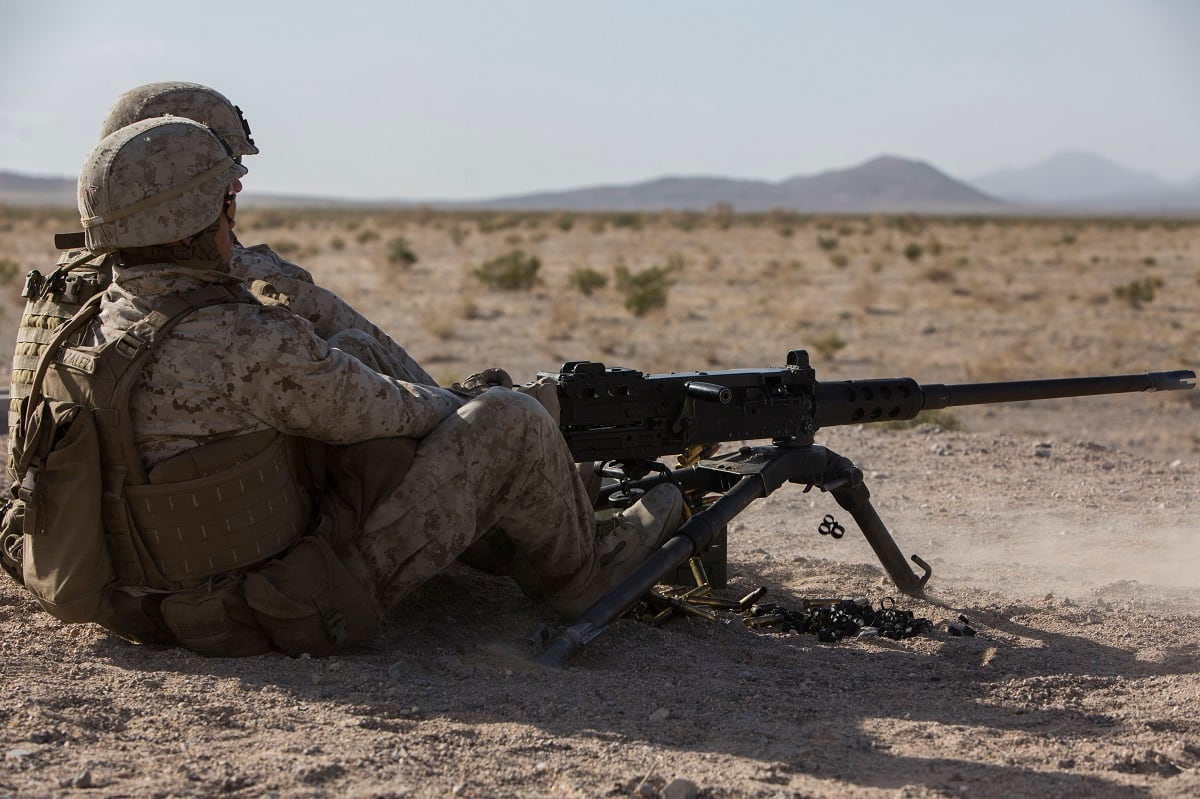
Machine Gunner (0331)
What they do: Machine gunners are maybe the proudest MOS within the infantry.
It’s hard to find a former Marine machine gunner that does have the numbers 0331 tattooed down their triceps or across their chest. Machine gunners are highly trained at operating and employing medium and heavy machine guns along with their supporting vehicles. They provide direct fire in support of rifle platoons and companies. While patrolling on foot, machine gunners carry a 7.62 M240 machine gun and while mounted often fire a MK-19 automatic grenade launcher or .50-caliber machine gun.
How to become one: First, you have to sign a 03XX contract, also referred to as an open infantry contract.
After basic training, you’ll be sent to the School of Infantry. During the first half of SOI, everyone learns rifleman skills, but at the halfway point there is what is called “the split.” If you have a GT score of at least 80 on your ASVAB and the combat instructors think you have what it takes to become a machine gunner, you’ll likely get a shot. If you’re a big guy that’s capable of carrying a lot of weight, you’re more likely to be selected as a machine gunner. If you’re a squared away Marine and stand out in terms of physical fitness, the machine gun combat instructors will likely ask you if you’re interested in becoming a machine gunner.
Job outlook after the military: Machine gunners are known for being mentally tough and being willing to carry more than their share of the weight. This transfers well into the civilian world and the values instilled into them while in the Corps is often more than enough to separate them from other candidates applying for the same position. Many machine gunners choose to attend college after leaving the Corps.
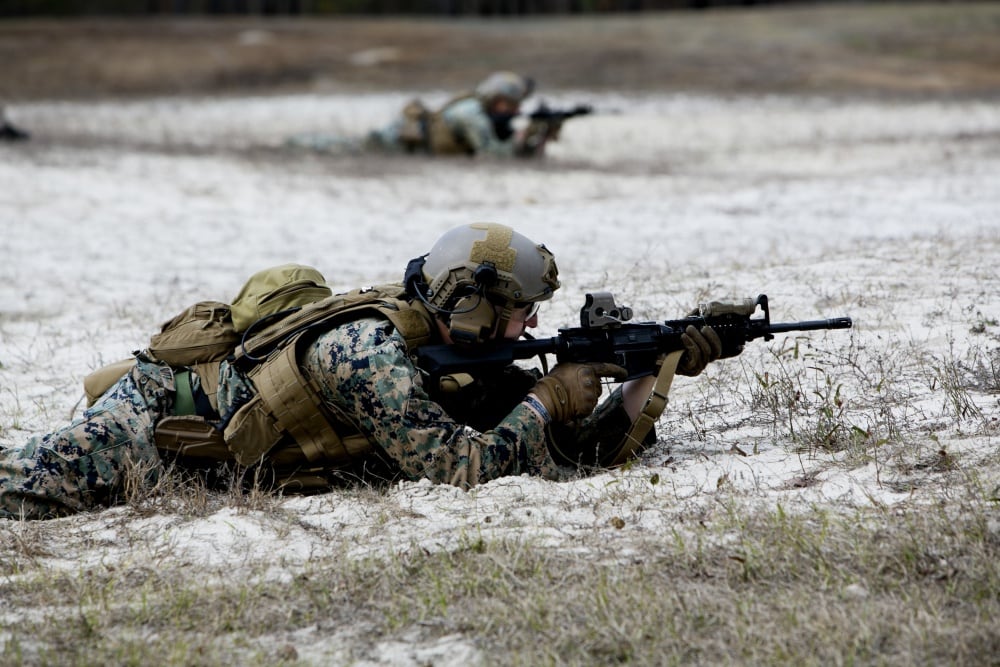
Marine Raiders (0372)
What they do: We’ve already talked about recon Marines, but what many people don’t know is that there is another elite unit within the Marine Corps known as Marine Raiders.
Marine Raiders serve under Marine Special Operations Command, or MARSOC, and are USSOCOM’S newest special operations forces unit with a proud history going all the way back to World War II. Marine Raiders have a similar skill set as recon Marines, but an entirely different mission. Recon Marines are tasked with battlespace shaping in support of a Marine Expeditionary Force, while Marine Raiders are tasked with supporting the government’s internal security, counterterrorism operations, counter-drug operations, counterinsurgency operations, direct action missions, and more.
How to become one: Marine Raiders look for skill sets from across the Marine Corps, so they select candidates from a wide range of MOSes, but most are infantry Marines. So, if you want to become a Marine Raider, your best shot is to join the Marines with an infantry contract and stay in great shape and out of trouble. Once enlisted Marines make it to the rank of corporal and officers make it to the rank of first lieutenant they may get a chance to attend a screener course to see if they have what the Marine Raiders are looking for.
Job outlook after the military: Employers in the civilian sector are often eager to hire former special forces operators because they know they’re hiring someone who is squared away and willing to take the initiative. Marine Raiders volunteer for some of the most dangerous and physically demanding jobs in the military.

Counterintelligence/Human Intelligence Specialist (0211)
What they do: Counterintelligence is a role that is constantly advancing and morphing into what’s necessary as technology, warfare and our political climate changes. For the Marines, a counterintelligence specialist focuses on organizing efforts from many intelligence assets that may be outside of the Marine Corps as well as obtaining and piecing together vital information for investigative and national defense purposes.
Just a few examples of situations you’d be focusing on is treason, espionage, terrorism, fraud and political unrest. The HUMINT aspect really focuses on the extraction of information from humans of interest. This would include organizing and managing data sources, contacts, lines of communication and anticipation of movement and action regarding activity that would be of interest to national defense. Often, a human intelligence specialist is tasked with obtaining and providing vital information that other military or governmental operations may depend on. Plan on being deployed to remote areas of the world for unspecified amounts of time!
How to become one: This particular role is very precarious as it’s requirements shift and evolve very rapidly. There are two “categories” of requirements. First, the basic requirements to get your foot in the door.
Once you choose this MOS, you’d have to laterally transfer from another MOS after turning 21 years old, obtaining a 110 GT or higher, having a minimum of 36 months left of active duty, obtain and maintain a top-secret security clearance eligibility, and achieving the rank of corporal or sergeant. Once you meet these requirements and have requested a lateral move you will then face multiple interviews and screenings conducted by the board of CI/HUMINT. If your screening goes well you will then be subject to a very extensive polygraph (lie detector test). After passing screening and security protocols you will then be subject to the Defense Language Aptitude Battery testing where you will undergo linguistic training and eventually take the Defense Language Proficiency Test with a score of 2/2 or higher.
After all of that, you have one hoop left to jump before entering (0211) which is the MAGTF CI/HUMINT training course and Nelson-Denney examination offered at the Navy Marine Corps Intelligence Training Center (NMITC) out of Dam Neck, Virginia.
The second set of requirements is that you are constantly studying and learning about various organizations, people of interest, threats and various other facets of your position. This position requires a lot of hands-on personal communication with contacts that you must attain a viable and professional relationship with. As new threats emerge such as organized terrorist groups, you must adapt and conform to new information quickly to remain relevant to the operation. A lot of your time is going to include studying, learning, and memorizing new information that generally tends to change rapidly.
Job outlook after the military: As the skills you learn and the experiences you endure during your time as a (0211) will vary greatly, the likelihood of you becoming at least bilingual is very high. During your training, you will likely choose or be tasked to become fluent in another language and as such, your fluency in another language alone may be enough to land you a job across many different sectors of industry. A good example of a job you could take is an interpreter.
If linguistics isn’t your cup of tea, no worries, as your training has given you many other skills that make you valuable to law enforcement, security and private military entities. A very popular avenue after the Marine Corps for an 0211 is to move on into an analyst role for the federal government. Agencies that seem to benefit from the skills you would acquire during your stint as an 0211 are the Department of Homeland Security, CIA, FBI and the NSA.
There are many avenues you could choose to take after leaving the Marine Corps but so long as you maintain your security clearances, you could earn far above the median wage for an American with many retired 0211 Marines operating in the private or even federal sectors earning six-figure incomes.
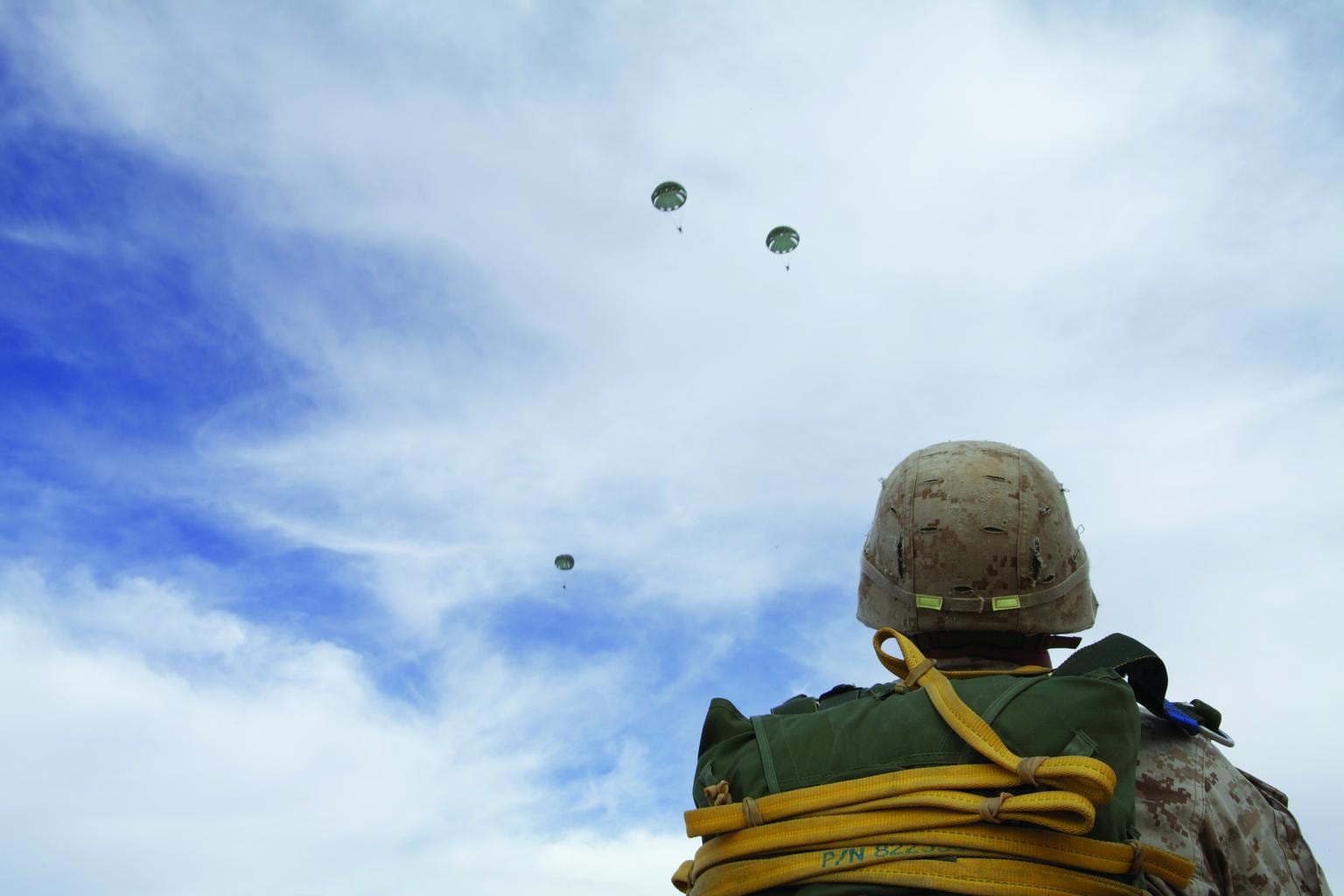
Parachute Rigger Marines (0451)
What they do: Looking for a guaranteed way to jump out of aircraft and get your jump wings? Parachute riggers get to do just that. This is easily one of the coolest jobs in the Marine Corps, but it is often overlooked because people just assume they only repack parachutes all day every day. In reality, parachute riggers have an extremely important job and some of the most highly trained Marines trust them with their lives.
Parachute riggers are air delivery specialists that are trained to perform parachute drop operations of both gear and personnel. Essentially, they are in charge of all the safety equipment involved in airborne and airdrop operations. They often serve as supervisors and help pick which drop and landing zones would be best. Parachute riggers support the preparation and execution of airborne operations and their job is far from lackluster.
How to become one: To become a parachute rigger you must have a GT score of 100 or higher. There are some also unique qualifications a Marine must go through before they can call themselves a parachute rigger. They first have to pass the U.S. Army Physical Fitness Test, which most Marines won’t have any trouble with. One key component of this Army Physical Fitness Test that many Marines are not used to is the timed pushups portion. After passing this test Marines must also prove they are strong swimmers by undergoing multiple swim qualifications that include crossing deep water for 40 meters while carrying all their gear and a weapon. They will then have to simulate an abandon ship technique by undergoing multiple exercises that involve jumping into deep water from various heights carrying full gear and their weapon. They must also a buddy rescue swim using the collar tow for 25 meters with a simulated passive victim along with two packs and weapons secured to them.
After that Marines will have to complete the Basic Airborne Course BAC at the U.S. Army Infantry School in Ft. Benning, Georgia. This is a three-week course where Marines undergo the Army fitness test and get basic instruction on jumping on static line jumping from fixed-wing aircraft. The last step to becoming a parachute rigger is to attend the Parachute Riggers Course in Ft. Lee, Virginia.
Job outlook after the military: It’s no secret that not every business is looking for someone with a skill set that revolves around flinging themselves out of planes but the skills you do have are quite niche and being specialized in them has some distinct advantages. Obviously you’ll have a wide array of skills when it comes to fixing, rigging, inspecting and maintaining parachutes alongside other equipment in the parachuting industry meaning you would be especially valuable to companies that offer parachuting lessons and recreational parachuting.
Aside from that you may find employment in air based logistics where you would be load planning and conducting general air cargo management.
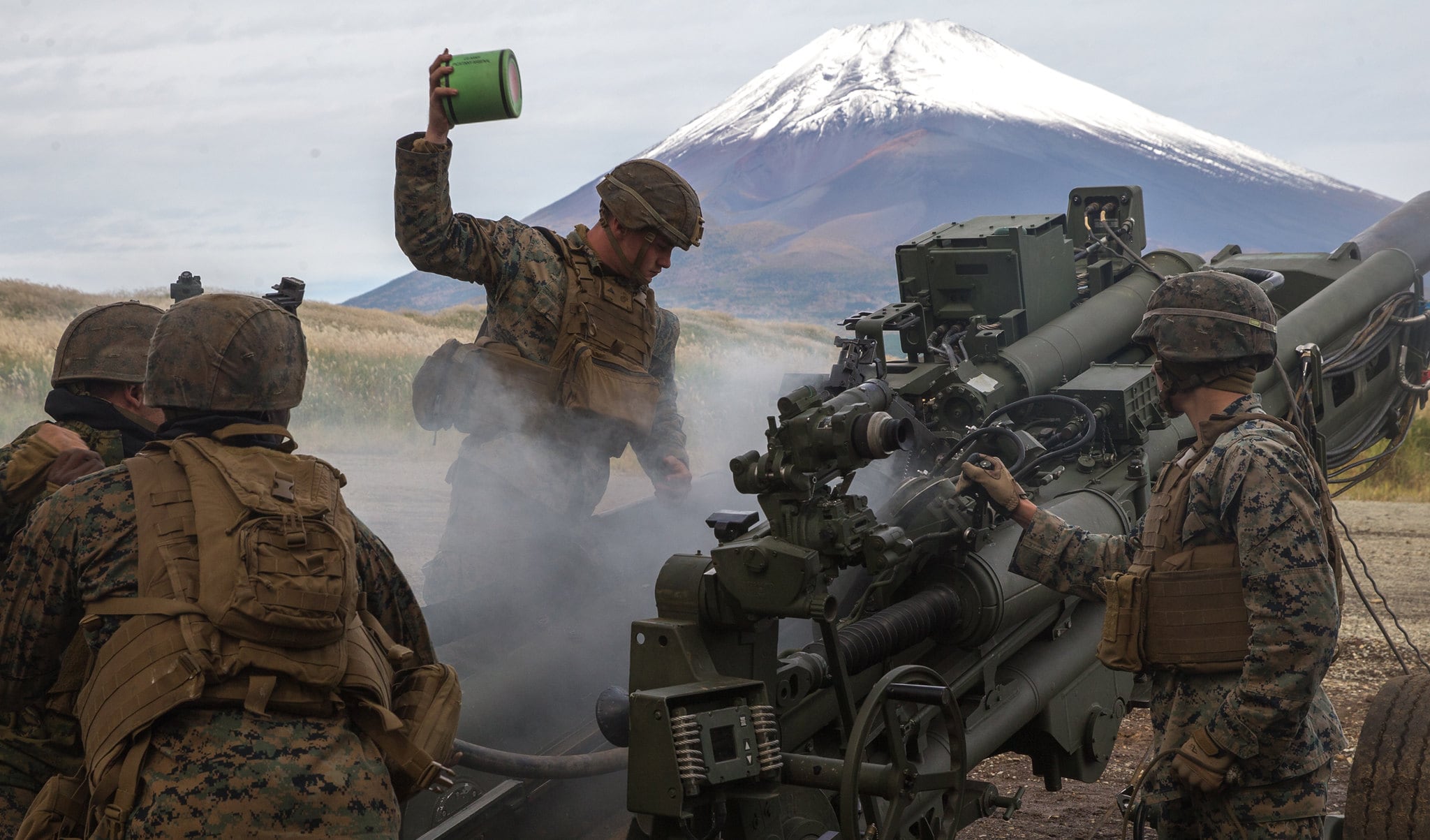
Artillery (0800)
What they do: As you might have guessed, Marines in the artillery field generally use explosive ordnance to suppress, support or eliminate enemy targets.
Keep in mind that there are many roles you’ll find within the artillery field. Some Marines within the artillery field may be tasked with reporting weather and environmental information to fireteams or leadership, while others may be tasked with spotting and locating the position of enemy artillery fire or aiding in the positioning, movement and strategy to avoid enemy artillery of troops in the field.
There is a very wide array of positions and skills to learn in this sector of the Marine Corps, and while most Marines in this field won’t actually be doing the firing, they still play a vital role in the overall mission of the artillery unit.
How to become one: There are a number of MOSes within the artillery field including (0811) field artillery cannoneer, 0814 High Mobility Artillery Rocket Systems, 0842 artillery radar operators, 0844 artillery fire control, and 0847 artillery meteorology, and more.
As there are so many unique roles, your training and path will be quite different depending on what specific MOS you hold within the artillery field. High skills in math, management, teamwork, precise communication are all vital to artillery personnel. If you want a job within the artillery field, your best bet is to speak with a recruiter about the specific MOS you’re most interested in.
Job outlook after the military: The job outlook is going to depend a lot on what MOS you held within the artillery field. The job outlooks aren’t as direct or transferable as some fields in the Marines, but the skills you learn should benefit you in a very wide array of applications from the federal level into civilian life.
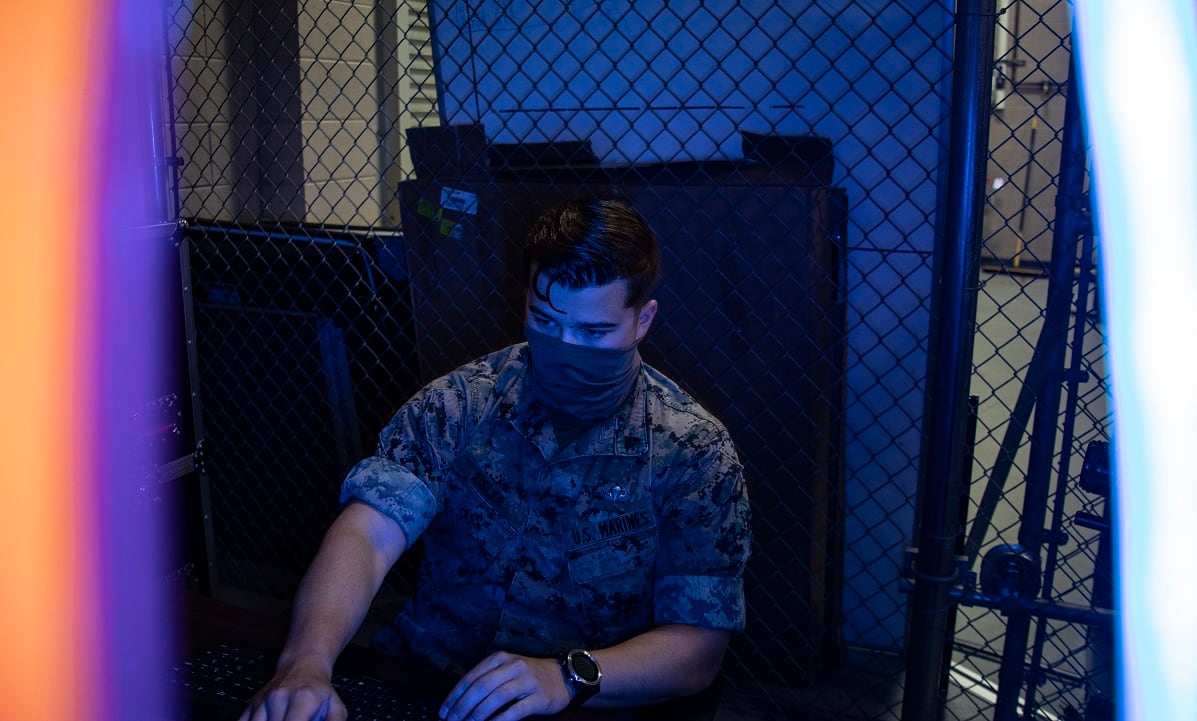
Information Assurance Technician and Cyber Warfare (0689)
What they do: Information assurance technicians originally started out with the direct purpose of ensuring the security and confidentiality of communications within military and government applications. The position has slowly morphed into more of a cybersecurity role as the threat of online and digital attacks rises with furthering technology.
A PMOS cybersecurity technician is tasked with securing all digital information and ensuring proper authentication protocols are met and consistently updated. Your role inside this PMOS may vary as there are many facets of securing digital data, however, most cybersecurity specialists will take on a somewhat advisory role putting them into direct communication with commanding officers and advising them on what assets need further security and what new facets of cybersecurity need addressing. You may enjoy working in a fast-paced team-based environment but you also may find yourself enduring tasks that require you to problem solve, analyze and research independently.
As you advance through your training and take on a cybersecurity position, cyber warfare becomes an avenue open to you once you achieve the rank of sergeant. Cyber warfare and cyberspace command is an entire entity inside of the Marine Corps tasked with ensuring the protection of U.S. information and digital assets from attack, compromise, and intrusion from enemy forces. Cyber warfare is very selective and very competitive to gain a position inside of but very rewarding both financially and by building skills you can use in the private sector.
How to become one: First and foremost you must begin your path as a Marine in the following MOS: network specialist (0656), data specialist (0651) or data chief (0659).
After obtaining the rank of sergeant, you’ll partake in the Information Assurance Managers Course and the Cyber Security Chiefs Course, and the Marine Corps Communication-Electronics School in 29 Palms, California. Although the Marine Corps will train you sufficiently to do your job, cyberspace is a constantly changing environment that may merit retraining or new training tactics that you need to remain up to date with.
After graduating from the aforementioned training courses you will be required to have at minimum two years remaining on your active duty contract and you must possess a GT score of 110 or better.
Of course, you couldn’t handle and maintain the military’s confidential data and its security without high levels of security clearances. First, you must be eligible for sensitive compartmented information and then you must acquire and remain eligible for a top secret security clearance.
Job outlook after the military: Becoming a Marine Corps cyber security technician is arguably one of the best routes into a high paying and highly rewarding public or private sector career path. A study found that the outlook of public and private sector data security positions is projected to grow by over 30 percent in the next few years which is a projection that far exceeds job growth from most other sectors. There are projected to be many open jobs for those of you with the skills and training of a Cyber Security Technician and as more companies look to online communications and cloud-based information storage, your role is projected to remain relevant and in demand for many years to come.
The median pay for cyber/data security technician is estimated to be in the ballpark of $90,000 yearly, putting cybersecurity technician as one of the most valuable pieces of training and skill sets to be garnered from the Marine Corps and then translated into the civilian world. Taking on a data management role could garner up to an average of $120,000 yearly.
Kevin Wabiszewski is a former 60 mm mortarman with 3rd Battalion, 4th Marines. He also is the founder of Marine Approved, a tactical gear review website run by former Marines.
The opinions expressed in this commentary do not necessarily reflect the views of Marine Corps Times or its staff. If you would like to respond, or have a commentary on another Marine Corps topic, please contact Editor Andrea Scott at ascott@mco.com.



